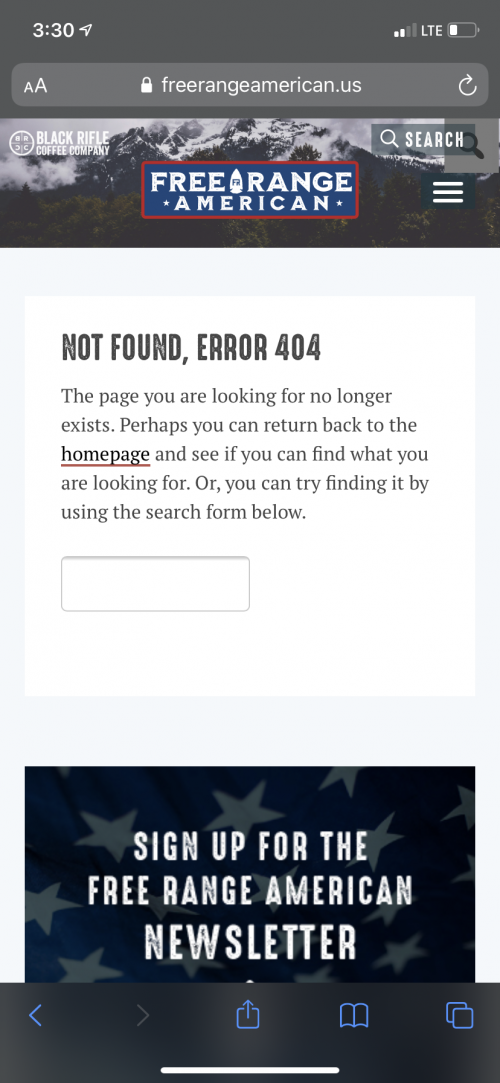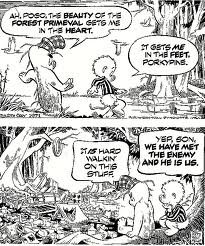Frequently Banned Troll
Well-known member
Over the past decade, hunters have increasingly publicized pictures and videos of their kills to large audiences on social media. This monumental change in hunting norms occurred gradually and with little thought for its consequences. These consequences are overwhelmingly negative. Don’t get me wrong, I’m all for sharing photos of harvested game with friends and family. I strongly support individuals and organizations that use social media to cover issues of importance to the hunting community. But it is time to unfollow hunters who post pictures of dead animals to hundreds, thousands, or even millions of, mostly, strangers.
Social media has corrupted our motivations for hunting and is risking the future of the very activity we love so much. Traditionally, we hunters took to the woods for hides, horns, meat, personal enjoyment, and a sense of self-reliance. Now, for the first time in human history, many seek a digital harvest. Rather than butchering meat for the freezer or tanning a hide, these kinds of hunters mostly want photos on their iPhones to beam out across the internet. More than cooking and eating what they shoot, they’re interested in exchanging it for likes and followers — and even corporate sponsorships in gear and dollars.
Primitive Hunter Gatherer on his phone matt rinella essayPrimitive Hunter Gatherer on his phone matt rinella essayLike. Like. Like. Like. Like. Like. Like. Like. Adobe
With my last name, this may strike some as a curious position. I’m the brother of Steve Rinella, the founder of MeatEater and maybe the most influential hunter in America today. While I dearly love Steve and am close with some of his coworkers, I’ve come to realize their approach — and the approach of many others — of blending hunting and media, and their efforts to publicize and commodify hunting and wildlife via every available digital platform, undermine hunters everywhere. It’s easy to forget these days that people can remain friends despite vehemently disagreeing, but we’ve managed to do just that.
My argument starts with the fact that, in much of the US, public-land hunting is so overcrowded it’s no longer worth it. The mainstream and hunting mediahave run articles bemoaning declines in hunter participation for years, but this is utter nonsense. The number of hunters is extremely difficult to determine, and even if hunter numbers have dipped slightly since the 1980s when US Fish and Wildlife Service data indicate they peaked, it’s irrelevant. Existing hunters are hunting more. When I crunched the data, it became clear that hunting license sales increased a whopping 30% between the 1980s and 2010s, and then the COVID-19 hunting boom increased hunter and license numbers even more. So, even if there are a few less hunters, those hunters are buying more licenses and spending more time crowding the woods.
Also, since the 1980s, the American landscape has changed in major ways. The US population size has increased by a third, the square footage of housing per person has doubled, and many former hunting spots are consequently residential neighborhoods now. The US simply doesn’t have the habitat needed to support the wildlife and hunters it used to.
matt rinella essay photomatt rinella essay photoLook, ma. I’m famous! Kurtis Frasier/Free Range American
As a result, big game draw odds have plummeted, private lands are increasingly leased for hunting and thus off-limits to the public, and public land hunting often begins with struggling to find parking at the trailhead, followed by struggling to find animals so pressured they suffer from PTSD. According to 2017 survey data, over half of hunters have abandoned spots due to crowding. In short, hunter numbers have grown beyond what the resource can support. I believe social media is largely responsible for this because it draws people afield under false pretenses and encourages hunting for unjust reasons.
I’d be remiss if I ignored my own history with hunting social media. I was never big on posting grip-and-grins online. Years ago, I completely stopped after seriously asking myself why I wanted lots of people to see what I had shot. Upon reflection, I realized bragging was my sole motivation. This troubled me. I’ve always had a low tolerance for bragging by others, so I disliked realizing I was guilty of it myself. It didn’t help that I was bragging about dead animals harvested for food. This seemed more consequential and perverse than the soccer trophies, kitchen remodels, and other inane shit people brag about online.
Share
Social media has corrupted our motivations for hunting and is risking the future of the very activity we love so much. Traditionally, we hunters took to the woods for hides, horns, meat, personal enjoyment, and a sense of self-reliance. Now, for the first time in human history, many seek a digital harvest. Rather than butchering meat for the freezer or tanning a hide, these kinds of hunters mostly want photos on their iPhones to beam out across the internet. More than cooking and eating what they shoot, they’re interested in exchanging it for likes and followers — and even corporate sponsorships in gear and dollars.
Primitive Hunter Gatherer on his phone matt rinella essayPrimitive Hunter Gatherer on his phone matt rinella essayLike. Like. Like. Like. Like. Like. Like. Like. Adobe
With my last name, this may strike some as a curious position. I’m the brother of Steve Rinella, the founder of MeatEater and maybe the most influential hunter in America today. While I dearly love Steve and am close with some of his coworkers, I’ve come to realize their approach — and the approach of many others — of blending hunting and media, and their efforts to publicize and commodify hunting and wildlife via every available digital platform, undermine hunters everywhere. It’s easy to forget these days that people can remain friends despite vehemently disagreeing, but we’ve managed to do just that.
My argument starts with the fact that, in much of the US, public-land hunting is so overcrowded it’s no longer worth it. The mainstream and hunting mediahave run articles bemoaning declines in hunter participation for years, but this is utter nonsense. The number of hunters is extremely difficult to determine, and even if hunter numbers have dipped slightly since the 1980s when US Fish and Wildlife Service data indicate they peaked, it’s irrelevant. Existing hunters are hunting more. When I crunched the data, it became clear that hunting license sales increased a whopping 30% between the 1980s and 2010s, and then the COVID-19 hunting boom increased hunter and license numbers even more. So, even if there are a few less hunters, those hunters are buying more licenses and spending more time crowding the woods.
Also, since the 1980s, the American landscape has changed in major ways. The US population size has increased by a third, the square footage of housing per person has doubled, and many former hunting spots are consequently residential neighborhoods now. The US simply doesn’t have the habitat needed to support the wildlife and hunters it used to.
matt rinella essay photomatt rinella essay photoLook, ma. I’m famous! Kurtis Frasier/Free Range American
As a result, big game draw odds have plummeted, private lands are increasingly leased for hunting and thus off-limits to the public, and public land hunting often begins with struggling to find parking at the trailhead, followed by struggling to find animals so pressured they suffer from PTSD. According to 2017 survey data, over half of hunters have abandoned spots due to crowding. In short, hunter numbers have grown beyond what the resource can support. I believe social media is largely responsible for this because it draws people afield under false pretenses and encourages hunting for unjust reasons.
I’d be remiss if I ignored my own history with hunting social media. I was never big on posting grip-and-grins online. Years ago, I completely stopped after seriously asking myself why I wanted lots of people to see what I had shot. Upon reflection, I realized bragging was my sole motivation. This troubled me. I’ve always had a low tolerance for bragging by others, so I disliked realizing I was guilty of it myself. It didn’t help that I was bragging about dead animals harvested for food. This seemed more consequential and perverse than the soccer trophies, kitchen remodels, and other inane shit people brag about online.
Share
Last edited:






